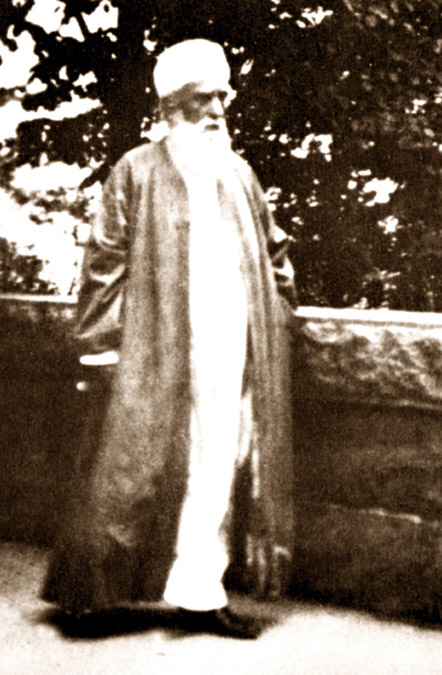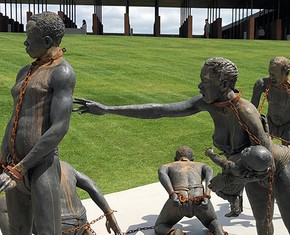The views expressed in our content reflect individual perspectives and do not represent the authoritative views of the Baha'i Faith.
The worst human quality and the most great sin is backbiting… – Abdu’l-Baha, Star of West, Vol. IV, p. 192.
I hope that each one of you will become just, and direct your thoughts towards the unity of mankind; that you will never harm your neighbors nor speak ill of any one; that you will respect the rights of all men, and be more concerned for the interests of others than for your own. – Abdu’l-Baha, Paris Talks, p. 159.
Do you regularly feel bad about yourself?
If you have constant feelings of low self-esteem, if your confidence consistently suffers, if you have a persistently negative self-image, you may be a victim of verbal and emotional abuse.
Verbal and emotional violence cuts right to the core of a person’s identity. With enough frequency and intensity, verbal and emotional abuse can leave the victim feeling permanently unlovable. Persistent thoughts of fear, unworthiness, and insignificance cause the verbal abuse victim to internalize the abuser’s accusations and even begin to believe them.
Society often trivializes verbal abuse. But lately, health professionals have begun to realize that a consistent pattern of verbal violence can have deeply negative effects on a person’s mental, emotional and spiritual health. Whether in bullying with children, in gossip and backbiting in adults, or in workplaces with emotionally-abusive bosses or co-workers, verbal violence can cause fear, anger, guilt or self-doubt, and inflict enormous and long-lasting pain.
The first step in stopping verbal violence and abuse, whether you’re the victim or the perpetrator, is identifying it. Verbal abuse can encompass a wide area, including blaming, accusations, bullying, threats, giving orders, undermining, trivializing, silencing, name calling and overtly criticizing another person. Verbal violence, in short, means speaking in a harmful or injurious way.
Verbal violence typically targets individuals, while hate speech targets groups. Most hate speech laws define it as any communication that disparages or might incite violence or prejudicial action against a group of people. In the same way, verbal violence and backbiting disparages an individual person, and could simply be considered another kind of hate speech.
These kinds of behaviors all fit into a single category of human speech the Baha’i writings call backbiting. Designed to wound, to cause pain and to dominate, backbiting slanders and speaks ill of others, whether individuals or groups. Backbiting includes all forms of speech that can potentially injure or be a cause of grief to another person.
The Baha’i teachings, identifying backbiting as “the worst human quality,” offer a simple remedy for this rampant worldwide problem: never speak disparagingly of another person.
In a talk he gave in New York in 1912, Abdu’l-Baha clearly elucidated the path to a world free of backbiting:
You must manifest complete love and affection toward all mankind. Do not exalt yourselves above others, but consider all as your equals, recognizing them as the servants of one God. Know that God is compassionate toward all; therefore, love all from the depths of your hearts, prefer all religionists before yourselves, be filled with love for every race, and be kind toward the people of all nationalities. Never speak disparagingly of others, but praise without distinction. Pollute not your tongues by speaking evil of another. – The Promulgation of Universal Peace, p. 453.
In this remarkable quote, Abdu’l-Baha gives us a clue about the effect the worst human quality of backbiting has on the perpetrator, when he says “pollute not your tongues.” We know that the violent verbal abuse of backbiting can have terrible effects on its victims, but here Abdu’l-Baha alludes to the effect on the one who backbites. He uses words like “pollute” and “defile” to describe that ugly impact:
Oh people of the world! I counsel you to act in a manner which shall tend to elevate your stations. Cling to divine virtue and obey the divine law. Truly I say, the tongue is for mentioning that which is good; do not defile it by evil speech. “God hath forgiven your past ways.” You must henceforth speak that which is worthy. Shun reviling, maligning, and whatsoever will offend your fellowmen. – Abdu’l-Baha, Baha’i World Faith, p. 208.
In this passage, Abdu’l-Baha recognizes that many of us have defiled ourselves by using our speech in negative ways in the past, and basically says “Go, and sin no more.” He asks us to begin again today, right now, to commit ourselves to shun any speech that will offend, and “henceforth speak that which is worthy.”
In the next essay in this series, we’ll take a look at what happens when people fail to do that.

















Comments
Sign in or create an account
Continue with Googleor